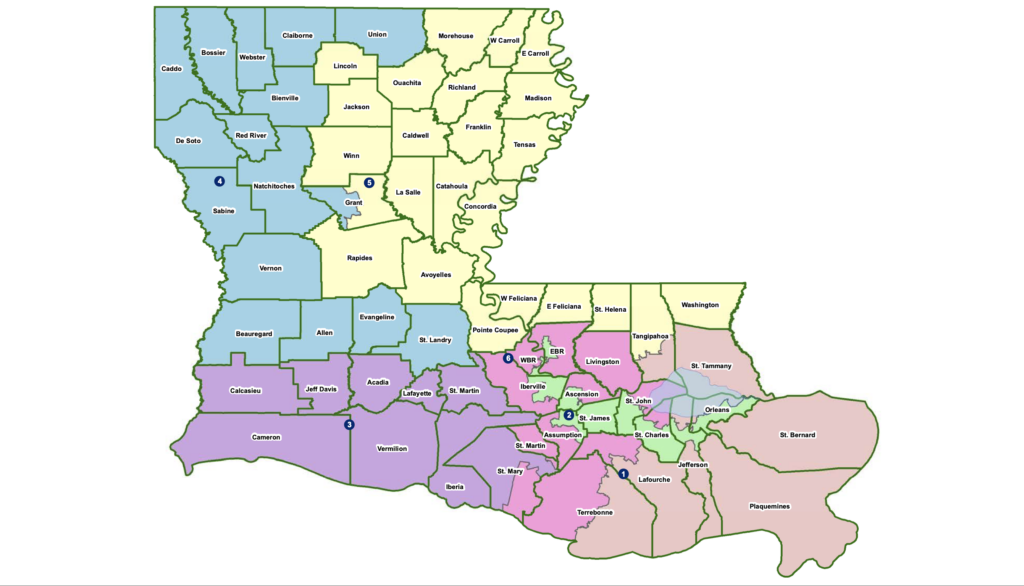Greg LaRose | Special to the Minden Press-Herald
One of the rising stars among Republicans in state government is Rep. John Stefanski of Crowley. He recently led redistricting efforts as chairman of the House and Governmental Affairs Committee, a role that saw him clock late hours at the Capitol and around the state during a legislative roadshow.
An attorney by trade, Stefanski has displayed his knowledge and adeptness when it comes to crafting law. You might not always agree with his conservative stances, but you have to respect how he stands his ground and treats his colleagues in the process.
But two recent actions from Stefanski raise concern that he has placed politics above principles. He’s far from alone in the statehouse, where too frequently lawmakers succumb to the prevailing climate that often chokes off reason and logic.
The first instance occurred last week when Rep. Kathy Edmonston, R-Gonzales, brought forward a bill to ban vaccine passports. The term is used for the option of adding proof of vaccination stamps to drivers’ licenses. Edmonston’s bill would prohibit the state from issuing a license based on a driver’s immunization status.
Because the state Office of Motor Vehicles currently doesn’t have the authority to stamp licenses in this fashion – and no one has suggested they should – Stefanski rightly questioned the need for Edmonston’s bill.
“Let’s say we came back next year and allowed you to put the vaccine on (driver’s licenses), then your bill would do nothing?” he asked her on the House floor.
In response, Edmonston noted that vaccine passports had gained traction in other states. Stefanski again pushed for an answer about her bill.
“But it doesn’t actually do anything?” he asked again.
Edmonston wouldn’t admit to Stefanski’s point, saying only that it would stop the OMV from including someone’s vaccine status on their licenses.
“But the (OMV) can’t do that,” Stefanski told Edmonston. “I don’t disagree with what you’re doing. I just don’t think the legislation may be necessary.”
And after that compelling discussion, Stefanski proceeded to vote in favor of Edmonston’s bill, which cleared the House in a 58-23 vote largely along party lines. Despite its do-nothing status, he voted to support what the bill represents — a counter-punch to government overreach. But how can vaccine passports be government overreach when they don’t actually exist in Louisiana?
Another gaffe from Stefanski came Wednesday when he was arguing for a veto override in the House for the congressional redistricting bill Gov. John Bel Edwards rejected. Stefanski’s comments came after Rep. Royce Duplessis, D-New Orleans, had just finished telling colleagues how the failure to add a second majority-minority seat in Congress was a clear violation of the landmark Voting Rights Act of 1965.
“The Voting Rights Act is federal law. It is not (in the) Louisiana Constitution,” said Stefanski, who had started his floor speech with what he called a “constitutional lesson” about the veto override process and separation of governmental powers.
After the House voted 72-31 to override the governor’s veto, the bill moved to the upper chamber where Sen. Karen Carter Peterson, D-New Orleans, called out Stefanski for those remarks.
“This federal constitution, not the state – yeah, I get the difference – quoting the chairman on the other side (Stefanski) who made a point that we are Louisiana and this (override) is not federal law,” Peterson said. “I happen to disagree, that we do have to follow federal law, and what this bill represents is a violation of, yes, the U.S. Constitution.”
While Stefanski is singled out here, he’s far from the only state lawmaker who allowed party loyalty to steer their redistricting decisions. Sen. Sharon Hewitt, R-Slidell, who chairs the Senate and Governmental Affairs Committee, authored an identical bill with just one majority-minority congressional district. She shunned numerous proposals that sought more Black representation on the Louisiana Supreme Court, the state school board and in the Legislature.
Both Stefanski and Hewitt used similar specious arguments throughout the redistricting session to defend their proposals and others with GOP-support against Voting Rights Act violation claims.
A federal court will now decide if Louisiana’s congressional map will stand, and that ruling could well be appealed up to the U.S. Supreme Court. The high court’s conservative majority has issued rulings that have weakened the Voting Rights Act. Should justices ultimately back Louisiana’s congressional redistricting, the decision will have implications that would last at least a generation.
It’s likely Stefanski will be on the scene for some time to come, and he is certainly capable of making a lasting, positive mark on Louisiana political history. But his role in the 2022 redistricting process may well be a blemish on that legacy.
Greg LaRose is editor of the Louisiana Illuminator. He can be reached at [email protected].

